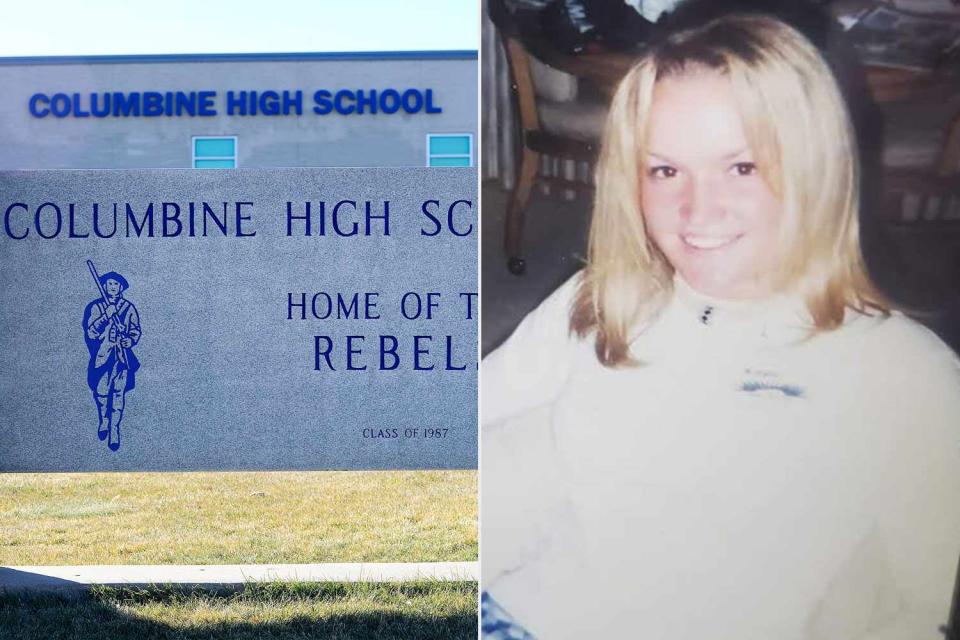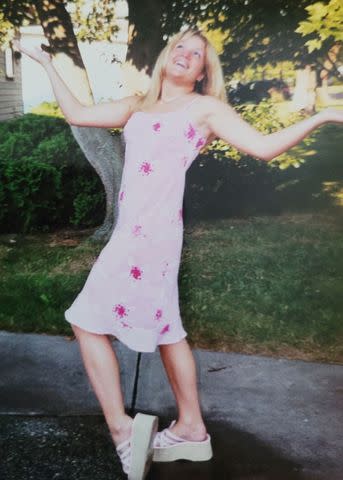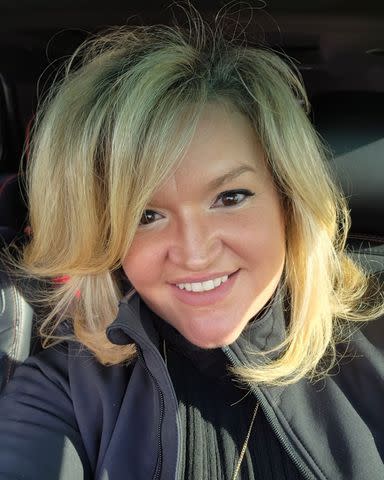25 Years Later, She's Still Haunted by Memories of Columbine Massacre: 'I'll Never Forget the Looks on People's Faces'
Missy Mendo, who was 14 at the time of the 1999 Columbine shooting, tells PEOPLE she "had no clue what it was like to have a normal high school experience"

Helen H. Richardson/The Denver Post via Getty; Courtesy of Missy Mendo
Columbine High School; Missy Mendo at age 14 in 1999.Prior to April 20, 1999, 14-year-old Missy Mendo looked forward to a typical freshman year at high school, complete with lively homecoming dances and cheerful sports games. But that day changed everything.
That morning, two of her fellow students at Columbine High School, in Littleton, Colo., opened fire, killing 12 students and one teacher, and injuring 24 others. For Mendo, the horror is still fresh in her mind, 25 years later.
“Some of the things that I will never forget during that day were definitely sitting in my classroom and looking out the window and seeing the looks on people's faces when they were looking back at the building, as they were running across the street,” Mendo, now 39, tells PEOPLE.
At the time, the Columbine attack was the deadliest school shooting in U.S. history.
Mendo recalls the shooters firing at her and several other students who had fled to a park across the street from the school. She managed to escape the building physically unharmed and ran into the neighborhood, where she says there were residents holding their doors open, “just funneling kids into their house for protection.”
Related: 1999 Columbine Massacre Still Haunts School Principal: 'They Will Always Be My Kids'
“I never knew the name of the woman,” Mendo tells PEOPLE of the resident who welcomed her into her home. “I don't remember the house, I don't remember the door. But the random act of kindness for a complete stranger protecting children is something that I will never forget. If I could ever find that person and thank them, I absolutely would.”
Mendo says she distinctly remembers groups of children standing in line to use the phone but none of the calls going through. Once it sounded quiet outside, Mendo recommended that the group venture out to a nearby gas station to use the phone and contact their loved ones.
“We started to walk out of the house and looked around, and our friend's dad, who's a volunteer firefighter, happened to be driving in front of this woman's house, and we recognized his truck,” Mendo recalls. “I yelled for him, and he put us flat in the back of his truck and was able to get us around all of the emergency vehicles and everything into the adjacent neighborhood where we could call our parents.”
While she doesn't remember the ride home, Mendo recalls the moment her father turned on the answering machine, which had a full voicemail box. She recognized the voice of a friend's parent. “It was them pleading to ask my parents to ask me if I had seen their child,” Mendo tells PEOPLE.
She adds, “I knew who they were asking about, and then feeling guilty that I didn't see this person, and that they made it out. ... I felt guilty that I didn't have an answer to comfort another parent.”

Courtesy of Missy Mendo
Missy Mendo at age 14 in 1999.Mendo’s friend made it out safely once a SWAT team arrived, but she had been barricaded in the science room for hours, where Mendo says teacher and coach Dave Sanders took his last breath.
In the years after the shooting, Mendo says she “had no clue what it was like to have a normal high school experience,” and that the lives of the students were “underneath the microscope.” Whether it was a false threat, a mention of the massacre on the news, or cameras following students on a run when an anniversary approached, Mendo was filled with anxiety.
And when that first homecoming dance came around, Mendo couldn’t enjoy it.
Related: 20 Years After School Shooting, Current Columbine Students Spotlight Horrors of Gun Violence
“There were people who weren't able to dance because they were injured. There were people who were not here anymore. There were parents who were grieving that their child will never have the next homecoming,” she tells PEOPLE.
Want to keep up with the latest crime coverage? Sign up for PEOPLE's free True Crime newsletter for breaking crime news, ongoing trial coverage and details of intriguing unsolved cases.
Mendo continues, “It was very hard to try and process things when you're already having challenges processing life as a teenager. How do you learn to process the normal things when you're not in a normal situation?”
Without the support of principal Frank DeAngelis and her soccer coaches, Mendo says she doesn’t know how she would’ve made it through those first few years.

Courtesy of Missy Mendo
Missy Mendo in 2024.Today, Mendo turns her pain into positivity as the director of community outreach for The Rebels Project, where she connects survivors of mass casualty events by creating a safe environment to share their stories and feel supported.
Referencing the 25th anniversary of the shooting on Saturday, Mendo tells PEOPLE, "It almost feels like a roller coaster that's going up and up and up, and it just never goes down."
For more People news, make sure to sign up for our newsletter!
Read the original article on People.


